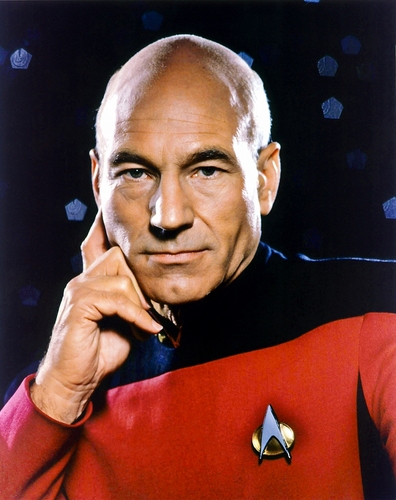People sometimes ask me, “why are you so vocal (aka militant) about your atheism? Why do you criticize religion? Why are you intolerant? You’ll never change anyone’s mind.”
My response to that final statement, which informs my answers to the other questions, is “how do you know?” The fact is people do change their minds all the time. Sometimes, less often than I would hope, but it does happen.
However, changing minds about religion is not my primary motivator when I talk about my worldview on this blog and other forums, or social media, and in real life. I have many reasons, but mostly I simply want to be true to myself, be authentic. Come out from the shadows. And find like-minded individuals to commiserate with. Doing so means adhering to a principal I believe in:
I do not believe any idea – religious or secular – should be immune from criticism.
All ideas should be subjected to challenging questions, and be exposed when they make no sense. I strongly believe that we cannot make good decisions as humans when we do not know, or lie to ourselves about, the facts of the natural world. If in expressing my worldviews which are spawned from this principal I also convince someone to question their supernatural beliefs or even abandon their faith, I will see that as a side benefit victory. Point in fact, I would love if there were no more faith-based religion anywhere. I think magical thinking holds us back as a species. It is born from our evolved need for patterns, storytelling, and making sense of the world.
Not all magical thinking is equal. Some ideas are worse than others, and can lead to more harm than those more benign. It is important to note that generally speaking I do not think all, or even most, religious people are bad, stupid, or harmful to society. I once believed in a supernatural god wholeheartedly, and I’m pretty certain my mental capabilities are the same now as they were then. But religion does breed a kind of dogmatic blindness to critical thinking, and makes it too easy for otherwise good people to behave in very immoral ways. Whenever you establish a-priori views for how the world must be, you throw out the ability to see clearly what actually is because you’re always trying to conform reality to that view. That is the kind of thinking that can (but doesn’t always) lead to other very scary ways of thinking, which in turn can lead to some very destructive and devastating behaviors, even by otherwise good people.
Holy Flying Spaghetti Monster, It’s the End of the World As We Know It!

Church of the Flying Spaghetti Monster http://www.venganza.org/
Back to the statement that I will never change anyone’s mind, I would only say that I am the product of one such mind-changing. And I know prominent atheist thinkers like the late Christopher Hitchens, Sam Harris, Richard Dawkins, Daniel Dennet (aka The Four Horsemen), among many others, have most certainly changed people’s minds. Minds are changed all the time. Sometimes people just need the tools and knowledge to make the choice to leap from the precipice.
And sometimes they need to be pushed.
I hope this blog and other places I discuss my worldview will push a few people off the cliff, or at least lead them to the edge to peer over. If you are strong in your faith, and unable or unwilling to let it go, then this blog – at least when it’s focused on atheism – probably doesn’t have much to offer you. And that is fine. But for those nearing the leap… I want you to know there are others out there like you, and you have a friend in me.
In the process of criticizing beliefs that have traditionally been somewhat protected under the guise of religious tolerance, people will inevitably feel offended. It is not my goal to offend people, but it is a byproduct I cannot control without completely stopping any discussion of who I am, and the things in life that I believe are important – vitally important. Recently I have been told I am intolerant, and even a bully. I find this astonishing. I do not doubt that there are many atheists and skeptics out there who have no qualms about viciously attacking believers (and other atheists) at any cost. I have often debated with them and even defended Christians and other believers. When I was a fledgling atheist, I was even attacked in forums I visited seeking like minds. It was shocking to me. But I came to understand that the only thing that truly binds atheists together is their lack of belief in supernatural gods. There is no unified “doctrine” or moral code. It’s merely the default way of viewing the natural world. It’s a tired metaphor, but effective: Atheism is a belief system in the way that not collecting stamps is a hobby. Nobody runs around telling people they are a-stamp collectors. Yet, because of the way human minds are wired and the way we’ve evolved, magical thinking won out and placed the burden of proof on the default instead of the other way around (the way science works).
Watery Tarts and their Swords…
As a former Christian myself, I understand why believers believe. And if I am considered to be intolerant and mean, I can’t even imagine the word believers use to describe some of the more direct and combative atheists out there. But I want to clarify one thing…
For me, tolerance has nothing to do with freedom from criticism.

“You can’t expect to wield supreme power just ’cause some watery tart threw a sword at you!”
I am a skeptic at heart more than I am an atheist. Being a skeptic (not to be confused with cynic) means evaluating ideas using reason, logic, critical thinking… basically the foundations of the scientific method. Skeptics constantly challenge the status quo, and dogma. They call a spade a spade. They invite debate and discussion. They question everything, probably annoyingly so. But this is not the same thing as personally attacking an individual believer. If you call me ignorant, but do not explain what is ignorant about what I say, you are personally attacking me, or using an ad hominem attack. That is something I am strongly against. But if I call what you believe silly, that is a criticism of an idea, not you. Ideally, I’d follow that criticism up with why I think it’s a silly belief as well. Tolerance is being able to have provocative discussions with those we disagree, and even debate with gloves off regarding the merits of an idea without resorting to personal insults, or violence. In the words of the brilliant skeptic and scientist Carl Sagan, “Extraordinary claims require extraordinary evidence.” That is an axiom I try to live by.
Will I make mistakes? Will I offend inadvertently? Will I occasionally even overstep my own goals and personally attack someone? Much to my chagrin, the answer to all three is most likely yes. That will never be my intention, but it is bound to happen when I am choosing to engage people in debate of such a volatile and emotionally charged topic as religion. I hope you will forgive me when I cross the line. I will forgive you in the same spirit. But we must all try to push back our natural inclination to immediately take offense when someone pushes the boundaries of our personal belief systems and worldviews. We must ask ourselves, is what that person said a criticism of me, or is it a criticism of an idea I find important? If it’s the latter, it is my hope that we engage in thoughtful discussion, instead of throwing barbs (either to ourselves or publicly), and instead of burying our heads in the sand.
There is nothing to be gained as a species by remaining in a criticism-proof Utopian bubble of belief coated in religious tolerance.
I Can’t Read Your Mind, and You Can’t Read Mine
I have also been called closed-minded, I think because I state things with confidence and the assuredness of that moment. This astonishes me even more than being called intolerant, partly because I am the least confident person you’ll probably know, and partly because the facts belie that conclusion. I can understand how in the heat of a discussion our emotions kick in, and we feel like an attack on our beliefs is an attack on our character. Its a knee jerk reaction that can be hard to control. But simply by exuding confidence, or by rejecting “new” evidence provided to me during a debate (often this is evidence I’ve already considered and moved past), I apparently appear unwilling to change my mind. Nonsense!
First of all, few people ever change their mind in the middle of a debate. Yourself included if you’re honest.
Second, a willingness to hear evidence or argument does not automatically lead to the adoption of evidence. That’s not how critical thinking works, otherwise with each new idea, we’d constantly change our beliefs.
And third, a lack of willingness to hear the same evidence that has already been considered and rejected is simply a way to save life’s precious ever waning time!
Essentially, people confuse my refusal to agree with them in that moment with an unwillingness to listen to new ideas and ponder. We all absorb new information over time. In some cases, it will lead us to a change of mind. In others, the new information will not make the cut. I can assure you, I hear what you say. I think about what you say (if I haven’t already, and sometimes if I have), sometimes for a very, very long time. Probably to an unhealthy level. But I will not automatically agree with you any more than you will automatically agree with me. If you feel I am truly closed-minded, how can you explain my total 180 in my world view, from strong believer, to atheist, based entirely on new evidence, critical analysis, and consideration of various philosophies?
I can only respond to that critique as it relates to the subject of god or no god by saying this: I am very willing to believe in god in the event there is sufficient (or any) evidence to do so. Can you say the same for your willingness to abandon your faith? In short, my question for you is (if you are a believer), what will it take for you to reject god? I have an answer to that question. Do you?
Now ask yourself who is closed minded?
Imagine No Religion Too
So, yes, full disclosure, it is my goal that one day, faith-based religion ceases to exist. I don’t expect this to happen in my lifetime, but I have decided to make it a personal mission to be part of that dream. This blog is one way I try to contribute. So is sharing my ideas on social media. I don’t believe in forcing anyone to believe anything, but I do believe in the power of words. I have been inspired by amazing writers and speakers, and while I can’t remotely compare myself to the powerhouses of the “new atheist” movement, I can do the best I can with what I have. Ideas matter. Things we believe matter. A common strain in polite society is “I don’t care what you believe, just don’t push your beliefs on me.” If you know me, I doubt you’d be able to think of a time when I’ve ever said anything like that. Usually what people mean is they don’t want to hear a different opinion, or a view that challenges their own. But I’m the girl that sits and listens to the street preacher, or takes their pamphlets to read on the bus,

Monster Shouter (Stephen King’s The Stand)
or invites the Jehovah’s Witness in to have a chat. As long as the discussion is civil, calm, and focused on the topic being debated, I really do want to talk and learn about ideas other than my own, even though sometimes those ideas can even make me uncomfortable. But I would never expect you to adopt my viewpoint, or respect my beliefs simply because I have them. You should adopt my beliefs if I persuade you with evidence and reason. You should be tolerant of my existence, and respect my freedom to think differently from you, but I will never ask you to respect my actual ideas unless they deserve that respect on their own merits. I expect you to expect nothing less of me.
Cheers,
PersephoneK
 On this day 237 years ago a midst the heat of a Philadelphia summer, the Continental Congress officially adopted Thomas Jefferson’s beautifully crafted words and Declared Independence from King George and Britain. Americans have celebrated that day ever since as our Independence Day. While it has become a day of outdoor fun and family get-togethers, hot dogs, beer, burgers, parades, and fireworks, its meaning has not been completely lost, but its not at the forefront of our minds, either. So, I wanted to take a moment to briefly consider what July 4th means to me.
On this day 237 years ago a midst the heat of a Philadelphia summer, the Continental Congress officially adopted Thomas Jefferson’s beautifully crafted words and Declared Independence from King George and Britain. Americans have celebrated that day ever since as our Independence Day. While it has become a day of outdoor fun and family get-togethers, hot dogs, beer, burgers, parades, and fireworks, its meaning has not been completely lost, but its not at the forefront of our minds, either. So, I wanted to take a moment to briefly consider what July 4th means to me.
 They showed that the pursuit of individual endeavors is worth fighting for, and achievable. Despite all of our flaws as a nation, Americans and all citizens of the world who enjoy the benefits of democracy, civil rights, and self-rule, owe a great debt to these brave souls – from soldiers, to statesmen, to farmers, to merchants, to writers, and ordinary citizens who supported the crazy dream — who risked it all 237 years ago.
They showed that the pursuit of individual endeavors is worth fighting for, and achievable. Despite all of our flaws as a nation, Americans and all citizens of the world who enjoy the benefits of democracy, civil rights, and self-rule, owe a great debt to these brave souls – from soldiers, to statesmen, to farmers, to merchants, to writers, and ordinary citizens who supported the crazy dream — who risked it all 237 years ago.
 In my recent post “
In my recent post “ I have said before that I do not think all religions or ideas are on par with each other. Some are worse than others, and therefore require different levels of concern, or attention. While I believe that it is better if as a species we all stop believing in things without sufficient evidence, I have few concerns with the beliefs of a radical
I have said before that I do not think all religions or ideas are on par with each other. Some are worse than others, and therefore require different levels of concern, or attention. While I believe that it is better if as a species we all stop believing in things without sufficient evidence, I have few concerns with the beliefs of a radical 













